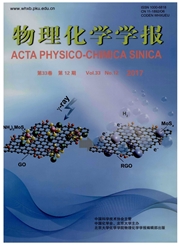

 中文摘要:
中文摘要:
采用非平衡分子动力学方法模拟了外电场及固体表面电荷对水与固体问界面热阻的影响.结果表明,外加电场平行于界面时,其对界面热阻几乎没有影响,而垂直于界面时,界面热阻将随着电场强度的增大而减小.壁面带正电荷或负电荷都将使得界面热阻减小.界面热阻与表面电荷密度及电场强度均满足二次函数关系.模拟结果表明施加外电场和表面电荷是控制液固界面热阻的有效方法.
 英文摘要:
英文摘要:
The effect of an applied electric field and the surface charge on the interfacial thermal resistance between water and solid has been studied using nonequilibrium molecular dynamics simulations. The results reveal that the electric field decreases the water-solid interfacial thermal resistance when it is perpendicular to the interface. However, it shows that the electdc field has a negligible effect on the thermal resistance when it is parallel to the interface. Both positively and negatively charged surfaces decrease the interfacial thermal resistance. The relationship between the interfacial thermal resistance and the surface charge density and electric field strength is a quadratic function. This study demonstrates that applying an external electric field or a surface charge are effective ways of manipulating the interracial thermal resistance.
 同期刊论文项目
同期刊论文项目
 同项目期刊论文
同项目期刊论文
 期刊信息
期刊信息
